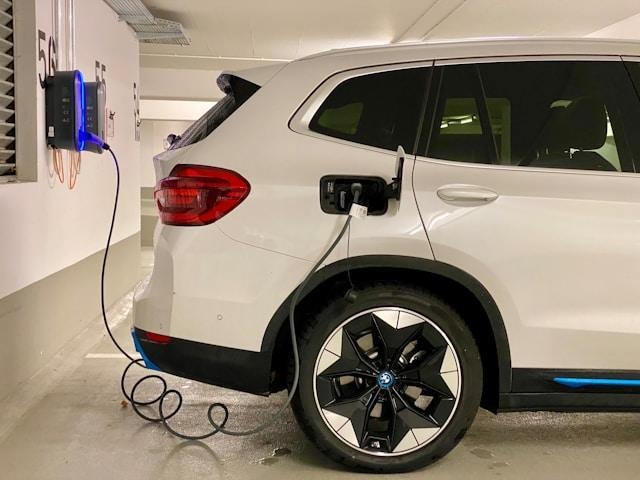Utility-oriented vehicles are absolutely crushing it in the American marketplace right now. You can't drive down a street without noticing this shift. PPM's recent estimates show a record 458,000 UTVs sold in the United States in 2018, up 5.9% from 2017 and a 95.3% gain from 2006 upward-trend-powersports. Those numbers? They tell a story about changing priorities and evolving needs.
What's driving this massive shift toward utility vehicle popularity? These machines represent something bigger, a fundamental change in how you think about getting from point A to point B. Modern utility vehicle trends showcase society's hunger for vehicles that don't force you to choose between capability and comfort.
Here's what's really happening behind those impressive sales figures: people are finally finding vehicles that adapt to their chaotic, multi-faceted lives. You're probably familiar with this scenario. You need transportation that works for your Monday morning commute, Wednesday's client meeting, and Saturday's adventure plans.
Traditional vehicles often fall short. That's where the research phase kicks in; many people turn to used trucks when searching for budget-friendly alternatives. Modern utility vehicles frequently deliver superior versatility for both professional demands and weekend escapades, creating a compelling case for rethinking your transportation strategy.
Remote work didn't just transform where you work; it revolutionized what you need from your vehicle. Utility vehicles for everyday use now come equipped with legitimate mobile office capabilities. Built-in power outlets? Check. Spacious cabins that actually fit your laptop setup? Absolutely.
Picture this: you're managing a construction project while fielding important client calls. Your utility vehicle becomes your mobile command center, complete with reliable connectivity and weather-resistant storage for sensitive equipment. No more choosing between productivity and mobility.
Forget those cramped compartments that never fit what you actually need to carry. Today's utility vehicles feature modular storage systems that bend to your will, not the other way around. Removable dividers let you reconfigure space on the fly. Hauling mulch for your landscaping project this morning? No problem. Switching to camping gear for the weekend? Easy.
Weather-sealed compartments protect your expensive electronics and critical documents from nature's worst moods. For outdoor professionals who can't afford equipment failures, this reliability becomes invaluable.
Beyond raw capability, these vehicles are integrating technology in ways that genuinely improve your daily operations, not just add complexity.
Wi-Fi hotspots and cellular connectivity aren't luxury add-ons anymore; they're essential business tools. Multiple device support means your entire team stays productive during those inevitable drives between job sites. Real-time GPS tracking helps fleet managers optimize routes and monitor vehicle locations without micromanaging drivers.
Smartphone integration provides diagnostic insights and maintenance alerts before small issues become expensive problems. This proactive approach saves you from those frustrating roadside breakdowns that always seem to happen at the worst possible moments.
Hybrids continue to be on an upward trend, up almost 70% in the last two years in terms of vehicles sold. This isn't just an environmental statement; it's smart business.
Electric utility vehicles deliver instant torque that transforms towing performance. Lower operating costs and simplified maintenance schedules make these options increasingly attractive for budget-conscious operators. Factor in government incentives, and the total cost of ownership often beats traditional powertrains by a significant margin.
Technology sounds expensive, right? Actually, the benefits of utility vehicles create compelling financial advantages that make them surprisingly smart investments.
Modern engines deliver impressive fuel efficiency without sacrificing the power you need for demanding applications. Extended maintenance intervals and durable components reduce your long-term ownership expenses substantially.
Here's something interesting: utility vehicles typically maintain stronger resale values compared to traditional passenger vehicles. This appreciation helps offset your initial investment and provides superior returns when it's time to upgrade.
Section 179 tax deductions allow qualifying businesses to write off utility vehicle purchases immediately. This deduction can dramatically reduce your taxable income in the acquisition year. Many models also qualify for accelerated depreciation schedules that provide additional tax benefits.
Commercial insurance rates for utility vehicles often compete favorably with traditional fleet options. Their robust construction and safety features frequently result in lower premiums and reduced claims over time.
Cost savings become even more meaningful when paired with safety innovations that protect both your investment and your people.
Collision warning systems and automatic emergency braking are becoming standard across utility vehicle segments. These features help prevent accidents that could devastate your budget through repair costs and insurance claims. Blind spot monitoring proves particularly valuable given these vehicles' larger dimensions.
Towing assistance systems maintain control when you're hauling heavy loads. Trailer sway control and integrated brake controllers provide confidence on challenging terrain with valuable equipment in tow.
High-strength steel construction provides superior collision protection within their vehicle class. Reinforced door frames and strategically placed crumple zones meet or exceed safety standards. Roll bars and reinforced rooflines offer additional protection during rollover scenarios.
Advanced airbag systems deploy intelligently based on impact severity and occupant positioning. This comprehensive protection covers both drivers and passengers across various accident scenarios.
As safety concerns diminish, utility vehicle capabilities unlock lifestyle possibilities that traditional vehicles simply can't match.
Camping and overlanding activities have exploded in popularity, creating demand for vehicles that access remote locations while providing comfortable transportation. Utility vehicles excel in challenging off-road conditions while offering amenities for extended trips. Factory-installed camping accessories like roof tents and auxiliary lighting systems expand your adventure possibilities.
Boat and RV towing capabilities eliminate the need for separate tow vehicles. This versatility appeals to families pursuing water sports, camping, and outdoor activities throughout the year.
Home improvement projects benefit enormously from vehicles capable of hauling building materials and landscaping supplies. You can transport everything from lumber to garden soil without rental trucks or delivery fees. This capability supports the growing DIY culture that values independence and cost control.
Small-scale farming operations depend on utility vehicles for equipment transport and harvest activities. Their compact size allows tight-space access while providing adequate payload capacity for agricultural needs.
The explosion in utility-oriented vehicles reflects profound shifts in how Americans approach work, recreation, and transportation priorities. These versatile machines successfully eliminate the traditional compromise between practical utility and modern lifestyle demands.
Their integration of advanced technology, compelling economic advantages, enhanced safety features, and recreational capabilities creates value propositions that resonate across diverse buyer segments. As hybrid powertrains improve and connectivity features evolve, utility vehicles are positioned to capture even larger market shares in coming years.
Can I realistically use a utility vehicle for daily commuting?
Modern utility vehicles offer comfortable seating, effective climate control, and fuel efficiency that make them practical for everyday driving requirements.
What financing options exist for utility vehicle purchases?
Banks, credit unions, and manufacturer financing programs offer competitive rates for both personal and commercial utility vehicle acquisitions.
Do utility vehicles require specialized maintenance?
Most utility vehicles follow standard service intervals similar to traditional passenger vehicles, though specific requirements vary by model.




Want to add a comment?